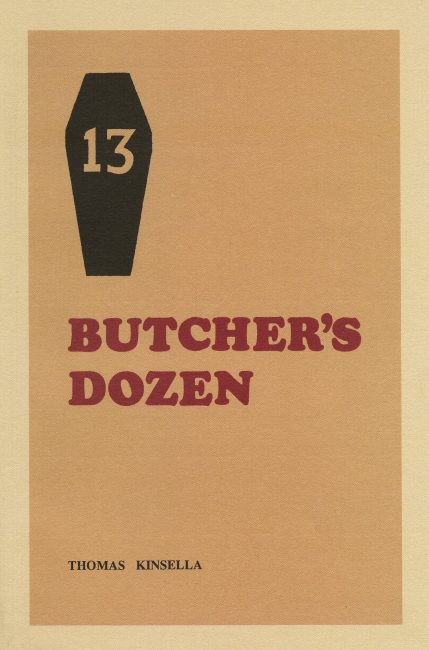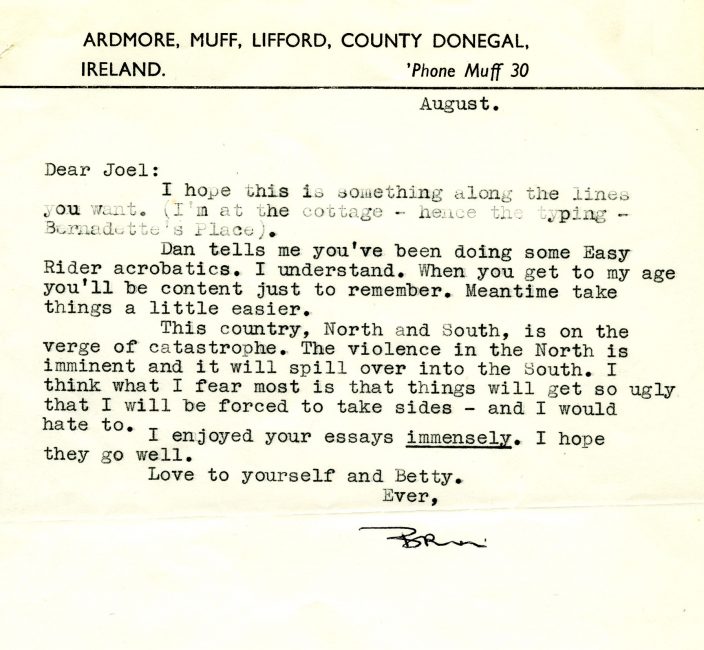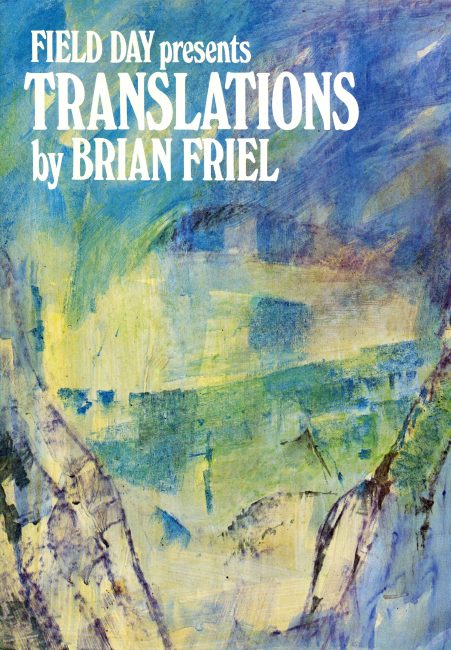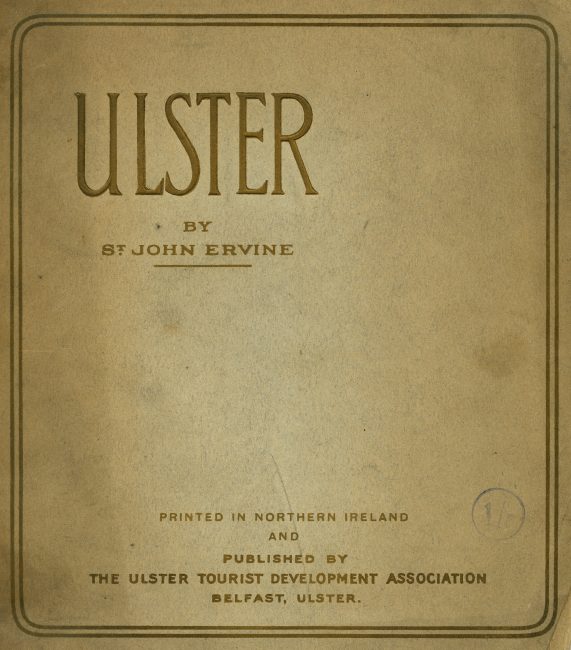Kinsella,Thomas. Butcher’s dozen. Dublin: Peppercanister. Distributed by Dedalus Press, 1992.
Poet Thomas Kinsella wrote “Butcher’s Dozen” in 1972 in response to Bloody Sunday 1972. In 1992, on the twentieth anniversary of the release of the Widgery Report, Butcher’s Dozen was reprinted. Kinsella argues that “Northern Ireland, twenty years after Bloody Sunday, is still an unjust and violent society. [...] The situation derives ultimately from Britain’s imperial past, and a tradition of imperial behavior. [...] Northern Ireland is regarded by them as a nuisance, not a responsibility.”
No. 42 of 125 copies.
Friel, Brian. Typed letter to Joel Wells. March 20, [no year.]
Seán O'Faoláin and Brian Friel letters to Joel Wells
Award-winning Irish dramatist Brian Friel (1929-2015) was praised as the Irish Chekhov and often compared to American playwrights Arthur Miller and Tennessee Williams. His work is known for its explorations of language, family, social and cultural identity, and memory. Friel and actor Stephen Rea established Field Day in Derry in 1980, responding to the widespread violence and political unrest that had plagued Northern Ireland since the late 1960s (known as The Troubles).
In this letter to American writer and editor Joel Freeman Wells (1930–2001), Friel comments on the Troubles: “This country, North and South, is on the verge of catastrophe. The violence in the North is imminent and it will spill over into the South. I think what I fear most is that things will get so ugly that I will be forced to take sides – and I would hate to.”
Field Day Theatre Company. Program for Brian Friel’s Translations, 1980.
Translations was Field Day’s first production. Friel and Stephen Rea founded Field Day in order to “redefine Irishness in the context of the Northern crisis ‘by producing analyses of the established opinions, myths, and stereotypes which [have] become both a symptom and a cause of the current situation [The Troubles.]’ ”
Ervine, St. John. Ulster. Belfast: Published by the Ulster Tourist Development Association, 1927.
Novelist, playwright, drama critic, and biographer St. John Ervine (1883-1971) managed the Abbey Theatre from 1915-1916. He had several plays produced at the Abbey that addressed conflicts between North and South and Protestant and Catholic, including Mixed Marriage (1911) and The Orangeman (1914). He wrote an autobiography titled Some Impressions of My Elders (1922).
The Ulster Tourist Development Association was founded in 1924. This publication emphasizes the Northern counties’ attractions. Ervine encourages readers to remember that “there is no Boundary to beauty…[the country is] divided by law into two Governments, yet there remains only one Ireland.” Photographs of popular tourist spots like The Giant’s Causeway in County Antrim are punctuated by popular song lyrics.





